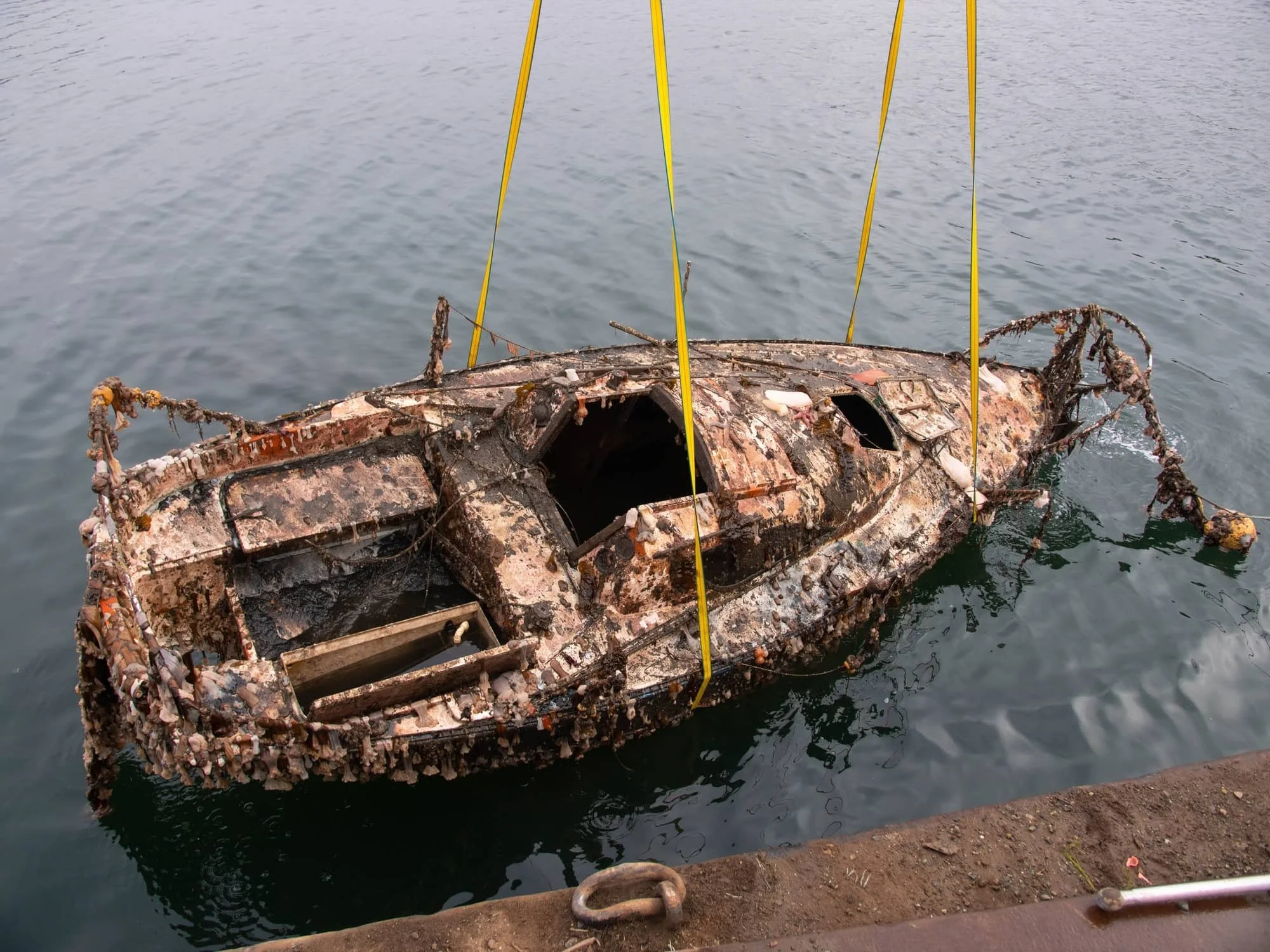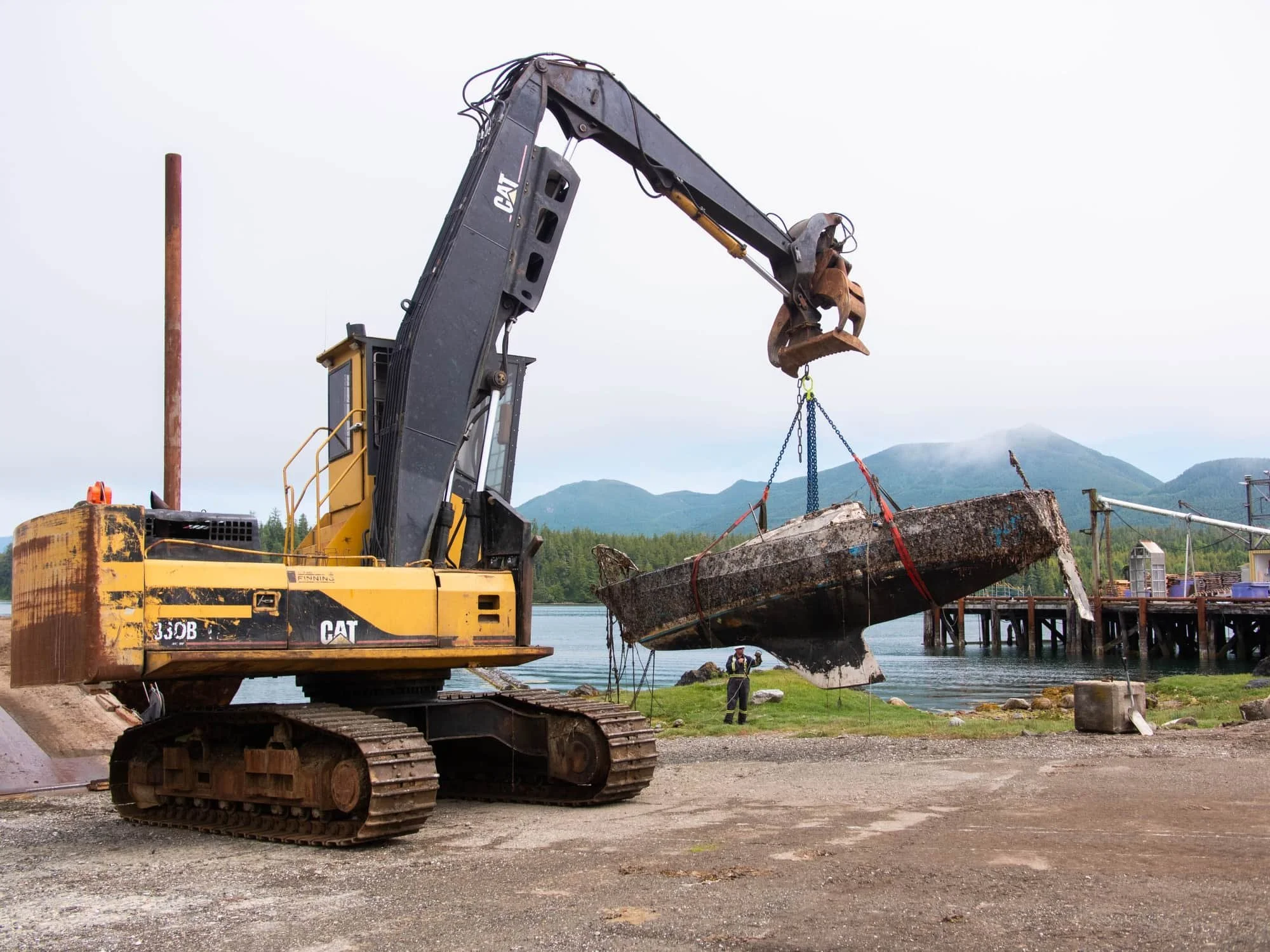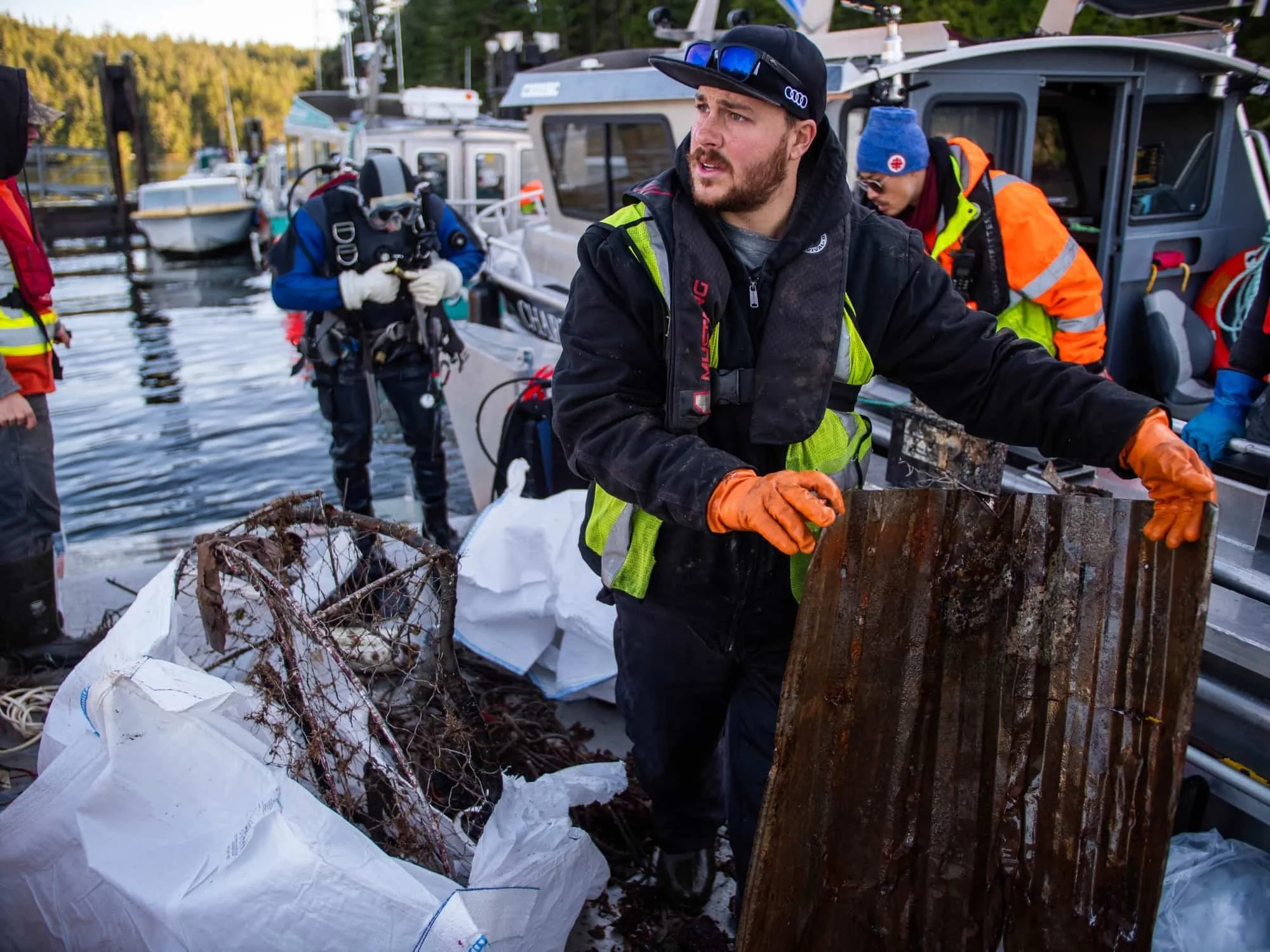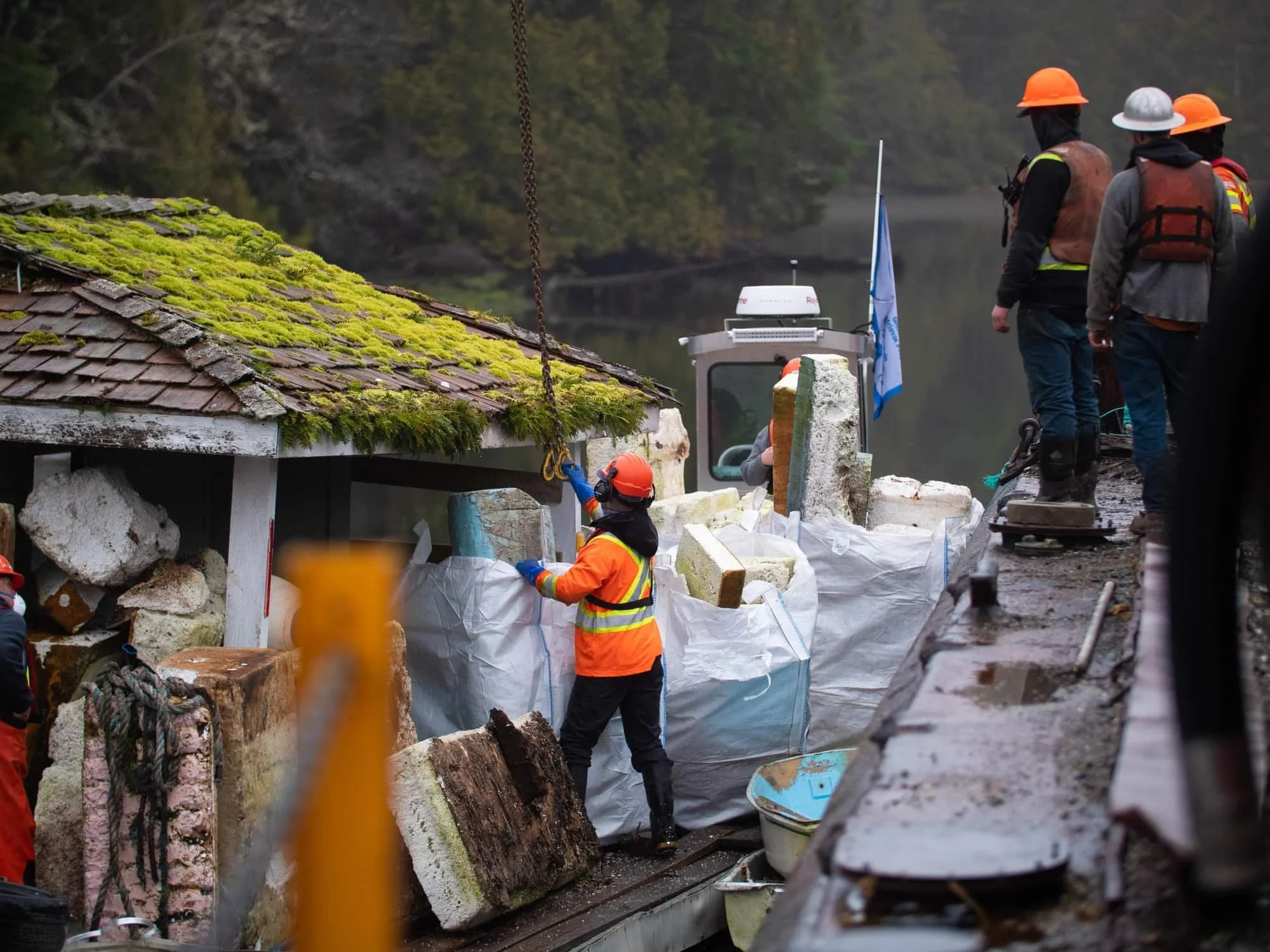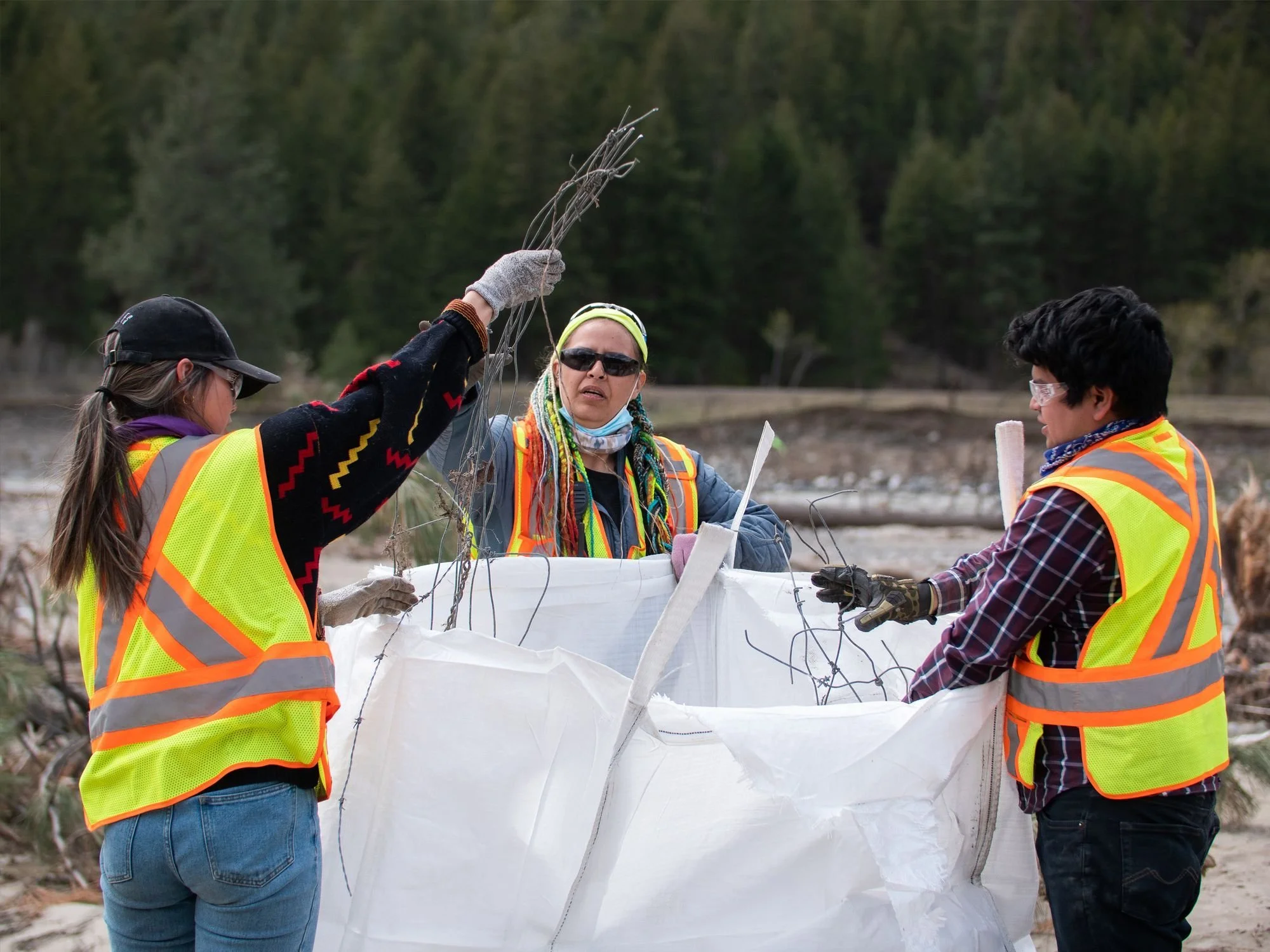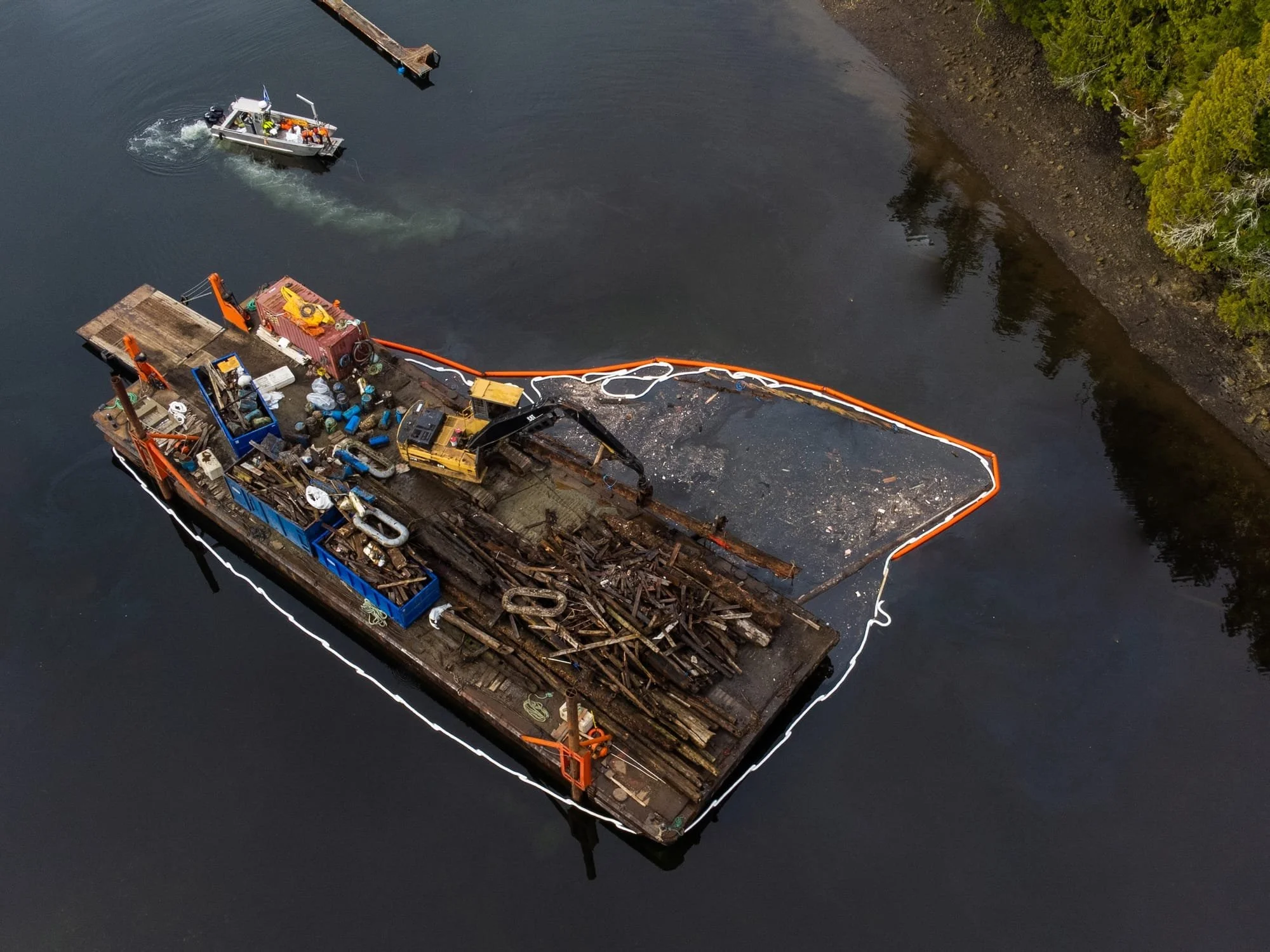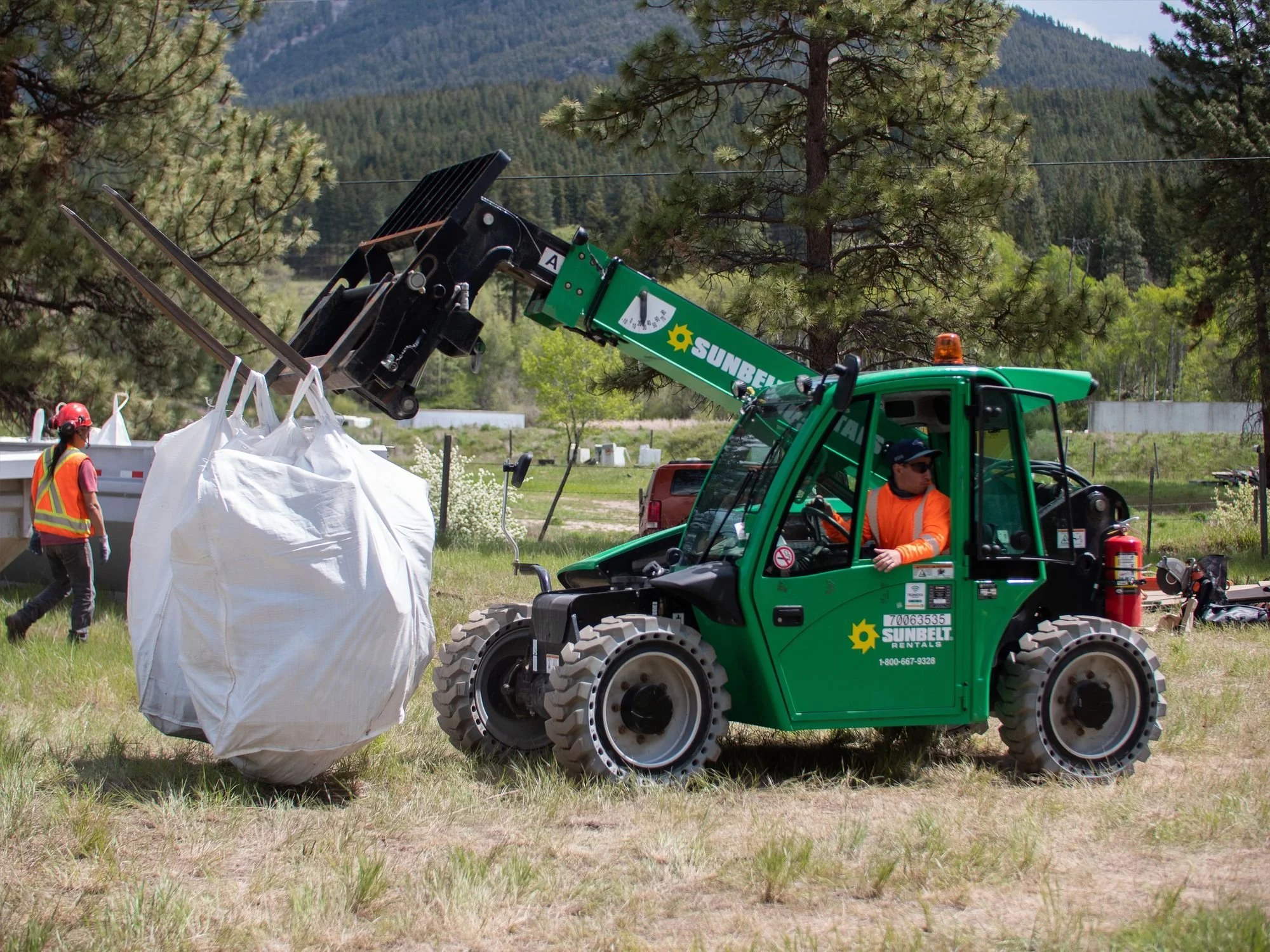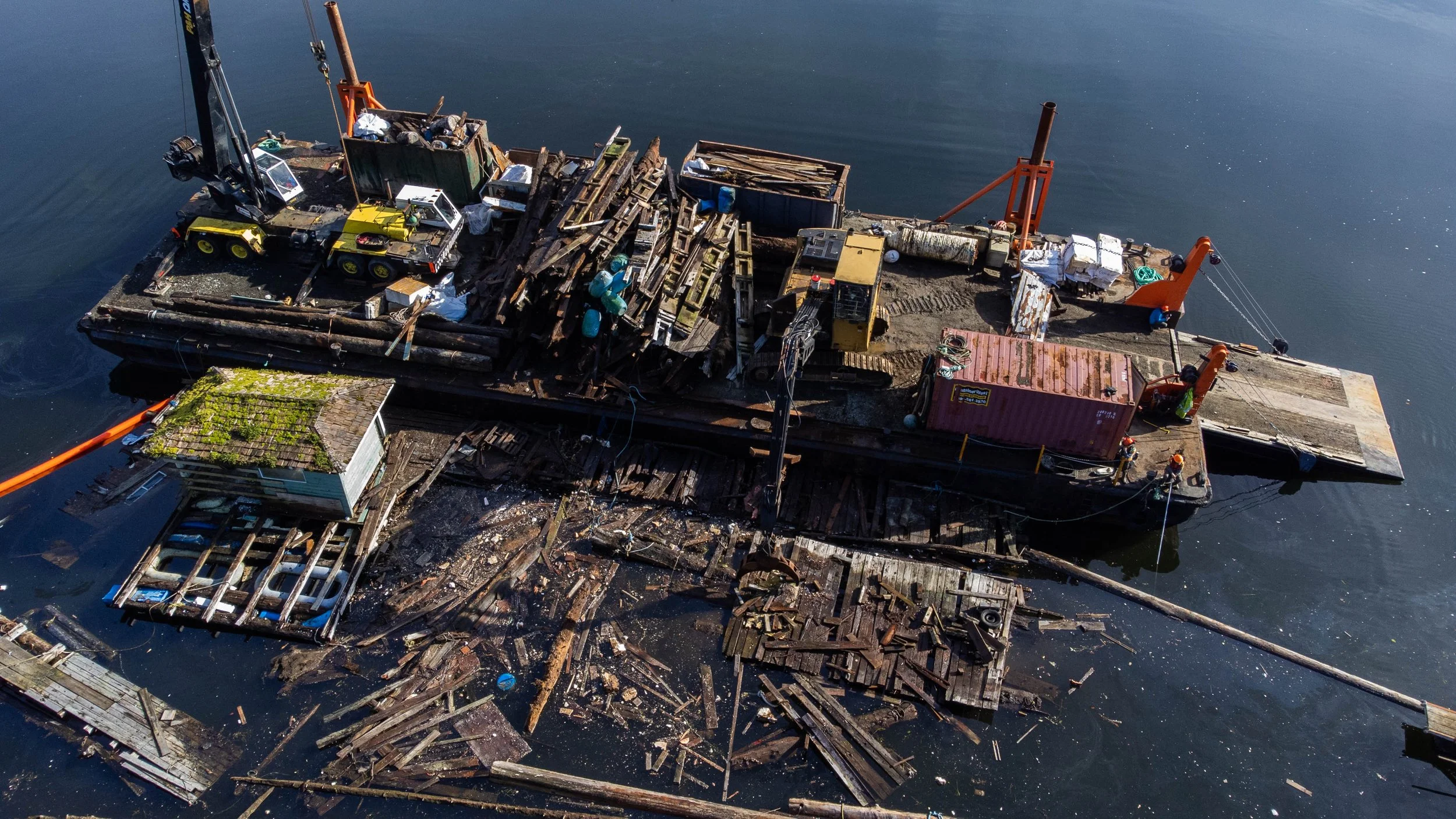
Coastal Restoration Society [CRS] is a coastal non-profit organization based on Vancouver Island, British Columbia. As a leader in industrial scale coastal restoration, CRS is committed to environmental remediation and stewardship initiatives in order to mitigate the degradation of BC’s coastlines. These ongoing projects provide a route to a sustainable future for our coastal communities and marine environments within. Since established, CRS has been able to provide 300 wage jobs, collect over 12,100,000 kg of marine debris and restore over 547 km of sensitive BC coastline.
“ CRS partners with coastal First Nation communities up and down the coast. We are able to gain guidance and local knowledge of these areas, allowing capacity building. We continue to build and maintain partnerships throughout the west coast.”

Areas of Focus
CRS is devoted to a multitude of core coastal initiatives. Working towards a cleaner coastline.
Defined as vessels which are wrecked, junked or abandoned, these boats are typically found on the ocean floor or scattered across coastlines. Derelict vessels pose a significant environmental threat as they decay. Large barrels of oil can seep into the water. In addition, polystyrene, metal and other debris break apart and pollute the surrounding area. The major caches of debris directly effect fishing grounds, oceanic and terrestrial species within that location.
Derelict vessels are broken down and safely extracted from their resting place, then disposed of. The project is operated out of the First Nation territories between Nootka Sound, Barkley Sound and Bamfield. Partnering with Transport Canada, Department of Fisheries and Oceans, Canadian Coast Guard, Provincial Government & Local First Nations. 2022 Statistics show a total of 100 vessels and their accompanying debris have been removed. The projects mission is working towards the restoration of a once immaculate coastline.
Of the 3,500,000kg of vessels and accompanying debris removed, 2,000,000kg went to landfills, 950,000kg was recycled and 550,000kg was up-cycled or repurposed.
“We [removed] a boat in...Ucluelet...[and] drove by [weeks later] & the spot where the boat sat is now growing sea asparagus. So it seems to be recovering pretty quickly. It makes for meaningful work”
Derelict Vessel Removal

“We removed 30 vessels out of the Clayoquot territory in summer 2022. With a 2 month window, we pulled a boat every two days”
— Spencer Binda
Ghost Gear Retrieval
Ghost gear, refering to abandoned fishing and trapping gear, is an environmental threat which heavily endangers marine life. The debris have the capacity of trapping and entangling Fish, Whales, pinnipeds and shellfish in addition too many other oceanic species.
CRS Focuses on correctly removing and disposing of derelict fishing gear & marine aquaculture harvesting debris for this initiative. Such as barrels, nets, traps, motors and rope.
More than 1,500,000kg of ghost gear has been removed since the projects beginning. Partnerships include those with Ahousaht, Tla-o-qui-aht, T’Sou-ke, Huuayaht, Tseshaht, Hupacasath, and Hesquiaht First Nations, Ministry of FLNRORD, DFO and Transport Canada.

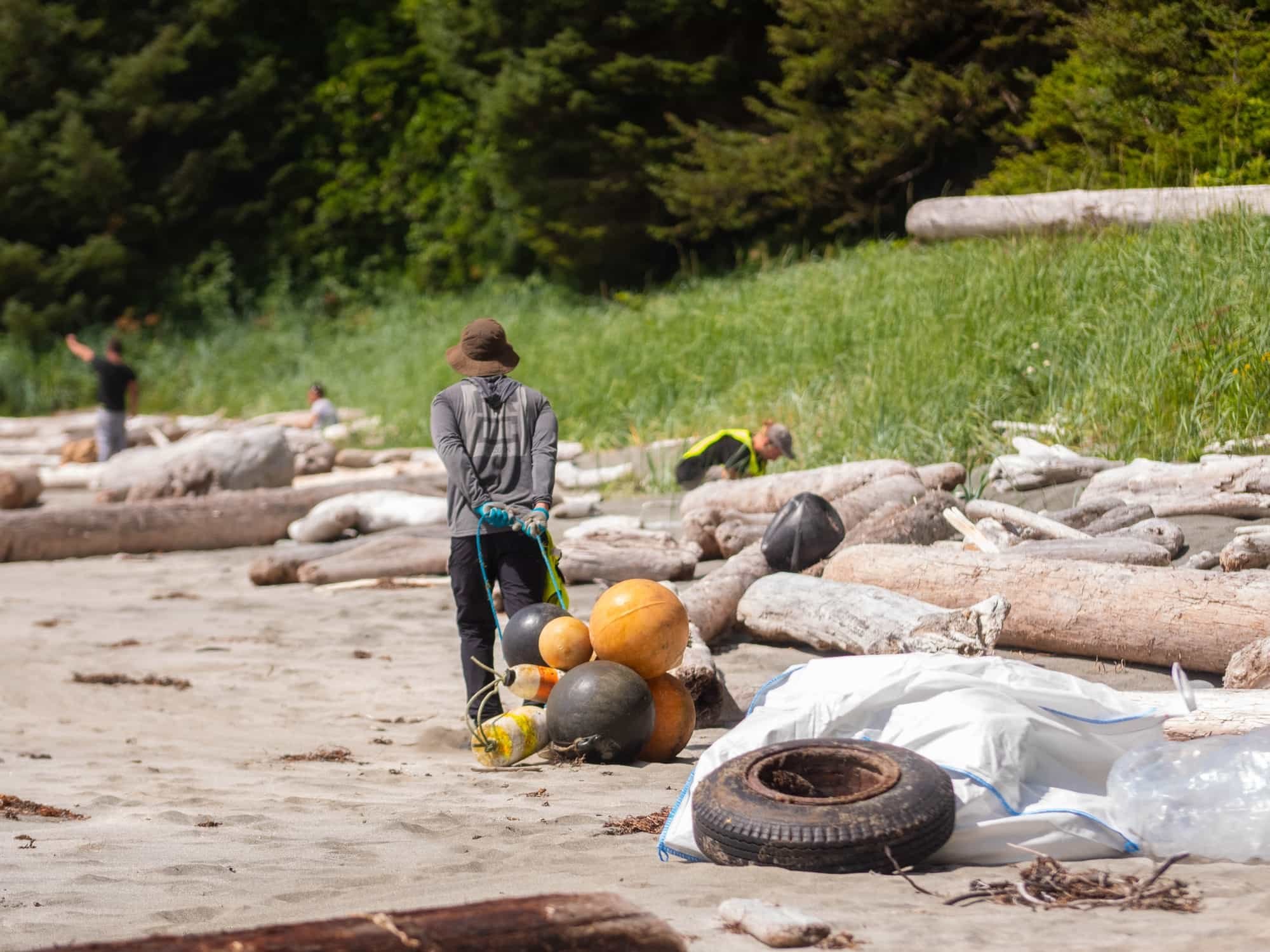
Abandoned Aquaculture Site Remediation
Aquaculture sites, typically found nearshore in watersheds or estuaries, are classified as farming facilities used for breeding, raising and harvesting fish, shellfish & aquatic plants. These facilities contain various equipment and structures for harvesting the aquatic species, and can be detrimental to an ecosystem if abandoned.
Partnering with DFO, Parks Canada, BC Parks, the Provincial Government & Local First Nations, the abandoned aquaculture site remediation initiative allowed 9 abandoned aquaculture sites to be removed along with 600,000kg of debris.
BC Flood Response
Contracted by the Ministry of Environment and Climate Change Strategy, CRS worked to remove flood debris within the Cooks Ferry Territory. Partnering with the indigenous communities of Coldwater, Lower Nicola, Nooaitch, Shackan and Cook’s Ferry, over 200,000 kg of debris was removed and 94km of shoreline cleaned. The flooding damaged communities and cultural sites. Moreover, debris and contaminants within the river threatened fish resources and thereby livelihoods within the territory. CRS worked efficiently to establish methodologies and protocols, onboarding and training over 200 indigenous employees to conduct flood restoration work. The innovative emergency response framework and foundational training programs CRS developed in part with local indigenous communities will provide future knowledge and structure for climate response projects.
Equipment
In order to safely and effectively conduct large scale coastal cleanup work, CRS has a variety of vessels and high end equipment. In addition, trained and experienced personal.
Excavators, bins and bin trucks are used for the extraction and loading of debris, as well as offloading to disposal facilities. Forklifts, cranes and netting is also used for debris collection. A notable staple piece of equipment within CRS’s fleet is their very own 28 foot custom built landing craft. two more landing crafts are in the process of being additionally built, both larger than 28 foot as operations expand. Finally, a smaller crew vessel for equipment and crew transport is included within the CRS fleet.
Clean Cost Clean Waters Initiative Fund (CCCW)
The CCCW fund was provided by the Government of BC as a Covid-19 pandemic response economic recovery initiative. After a loss of tourism, the fund helped to create jobs in coastal areas. Directed towards coastal indigenous nations, BC non-profits and organizations, the motivations were towards shoreline clean-ups and derelict vessel removals.
CRS, being apart of the CCCW fund, was involved in the largest ocean cleanup in BC history & the largest collaborative marine rehabilitation project in the history of the planet. In partnership with eleven Nuu-chah-nulth and Coast Salish First Nations, Ministry of Environment and Climate change Strategy, Rugged Coast Research Society, Surfrider and Ocean Legacy, the mission was clear. In phase 1, CRS has restored 394km of coastline, collected 133,236 kg of debris, recycled 69,538 kg of debris, and created 232 jobs.
“The CCCW provincial fund shows a great initiative on the BC province. Being apart of this project has provided us various partnerships with levels of government and coastal First Nation communities. ”




